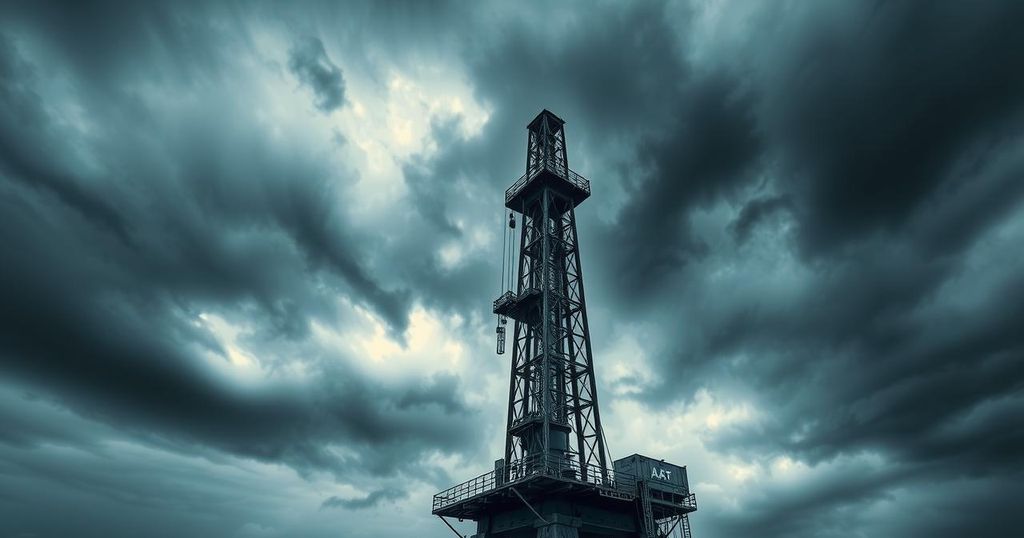Elections
Politics
ASIA, BIDEN, CHEVRON, CORRUPTION, CUBA, DONALD TRUMP, ENEMIES, EUROPE, FRANCE, INDIA, ITALY, LEGAL ISSUES, NATIONAL SECURITY, NICOLÁS MADURO, NICOLAS MADURO, NORTH AMERICA, POLITICS, REUTERS, SANCTIONS, SOCIAL, SOUTH AMERICA, SPAIN, TREN DE ARAGUA, TRUMP, UNITED STATES, US, VENEZUELA, WASHINGTON, WASHINGTON DC, WHITE HOUSE
Nia Simpson
Trump’s Revocation of Venezuelan Oil Export Permissions: A Strategic Move Against Maduro
The Trump administration has revoked permissions for Chevron, Repsol, and other foreign firms to export oil from Venezuela, intensifying economic sanctions against Nicolás Maduro’s regime amid ongoing political crises and migration concerns. This decision expands previous bans and reflects Trump’s broader strategy of diplomatic confrontation with Venezuela.
The Trump administration has intensified economic pressure on Venezuela by revoking permissions for foreign companies to export crude oil from the country. President Donald Trump directed foreign partners of Venezuela’s state oil company, PDVSA, to cease all operations concerning Venezuelan oil. This decision follows last month’s withdrawal of authorization for Chevron, expanding the ban to include other non-American companies such as Spain’s Repsol, Italy’s Eni, France’s Maurel & Prom, and India’s Reliance Industries, as outlined by Reuters.
This latest move is part of Trump’s broader strategy to apply sanctions against President Nicolás Maduro’s government. Several companies had already paused oil imports from Venezuela after new tariffs were placed on Venezuelan oil buyers. Previously, during the Biden presidency, many firms benefited from waivers despite existing sanctions against Venezuela.
The motivation behind Trump’s actions is intertwined with Venezuela’s ongoing political crisis. Maduro was inaugurated for a third term in January amid allegations of election fraud, resulting in a significant exodus of Venezuelans—over 7.7 million have fled, primarily to Latin America and the United States. Trump has utilized this situation to reinforce strict immigration policies.
On his platform, Truth Social, Trump accused Venezuela of deceitfully sending criminals, including violent offenders, to the United States. Recent initiatives by the White House aim to enable deportation of immigrants under the Alien Enemies Act, targeting individuals allegedly linked to criminal gangs. However, evidence supporting Trump’s claims regarding the ‘Tren de Aragua’ gang’s infiltration has not been substantiated.
Since resuming office, Trump has engaged in numerous diplomatic confrontations, particularly with Venezuela, indicating that the current trade dispute is likely to persist amid ongoing tensions between the two nations.
In conclusion, President Donald Trump’s recent actions underscore a significant escalation in economic sanctions against Venezuela, targeting foreign oil companies’ operations as part of a broader strategy to pressure Nicolás Maduro’s regime. This move illustrates the administration’s intent to confront perceived threats posed by Venezuelan migration and alleged criminal activities, reflecting a continuation of Trump’s confrontational diplomatic stance. The implications of these sanctions could further isolate Venezuela economically and politically, while also impacting international energy markets.
Original Source: en.as.com








Post Comment